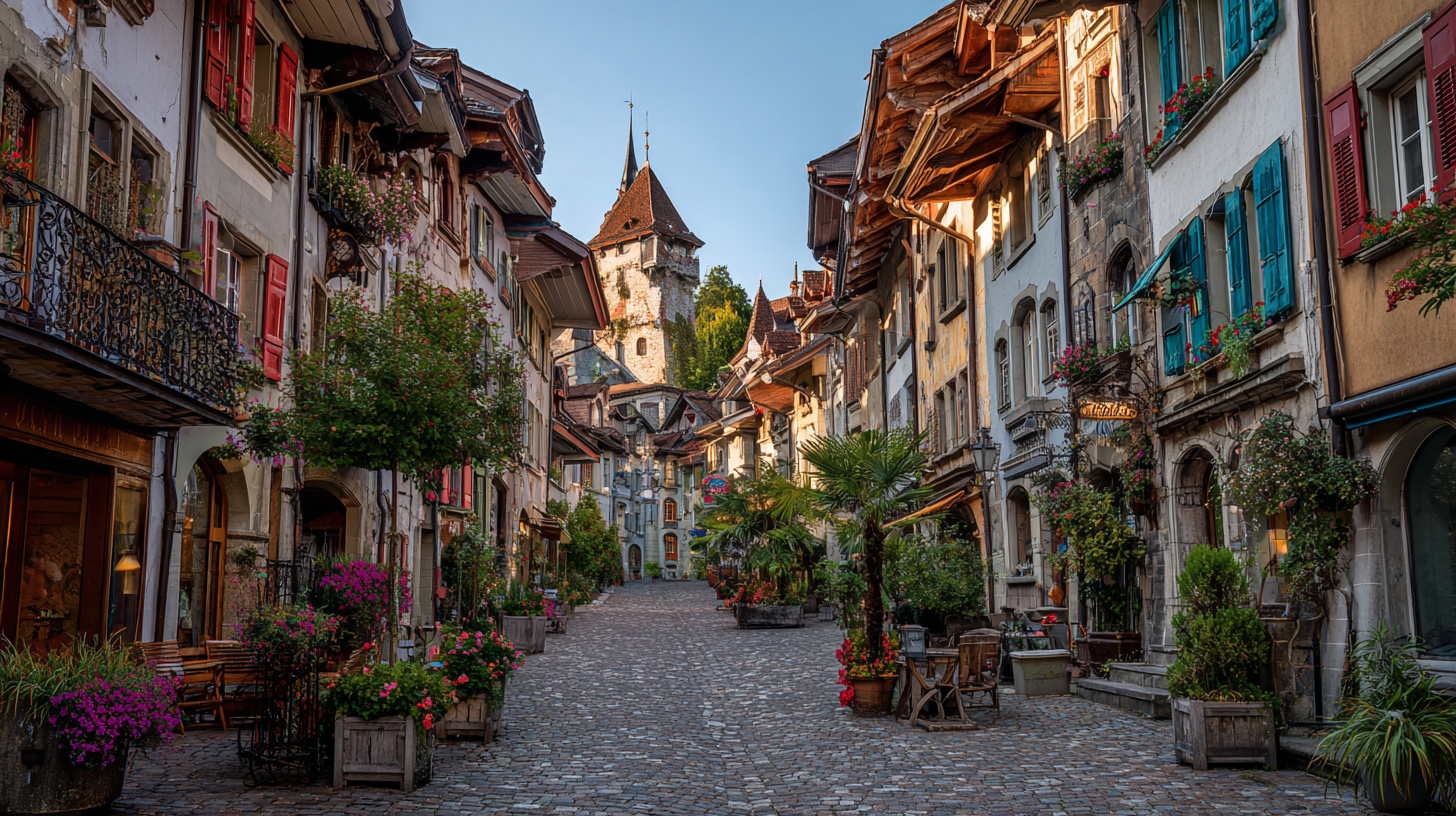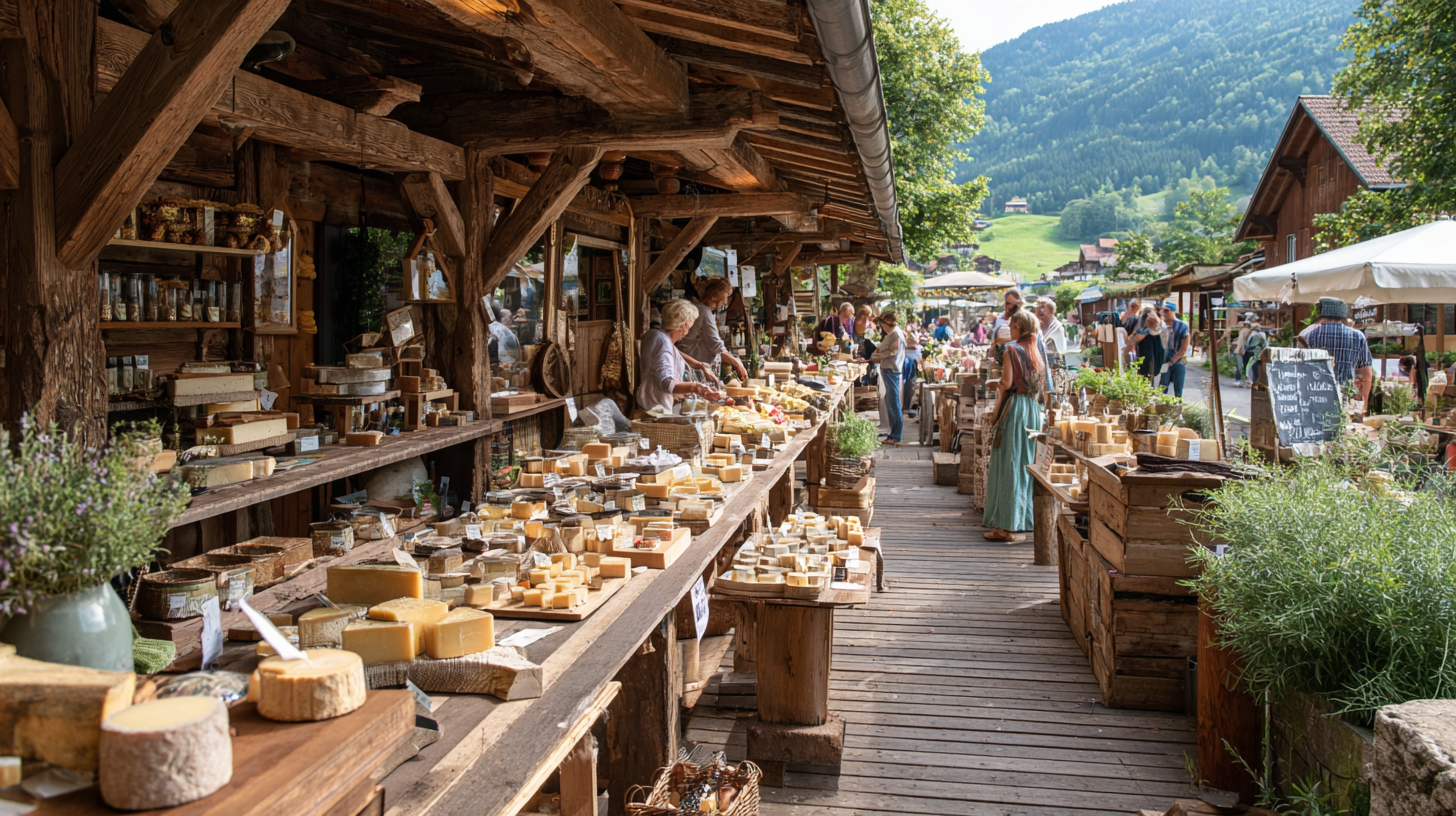Sustainable tourism in Switzerland has transformed how the country protects its natural treasures while welcoming visitors. Switzerland is known for its towering peaks, mirrored lakes, and postcard-perfect landscapes — but its real achievement lies in how passionately it protects them. The country has become a global model for sustainable tourism, blending innovation, environmental responsibility, and refined hospitality. Travelers exploring Switzerland discover a destination where nature is not just admired but actively preserved, and where every journey can be both memorable and environmentally conscious. This balance between luxury and sustainability sets Switzerland apart, offering a travel experience that uplifts rather than impacts the natural world.
Also read: A Culinary Journey Through Switzerland
Sustainable Tourism Switzerland: Green Vision and Nature-Protection Policies
Switzerland’s commitment to sustainability starts with long-term environmental planning supported by strong national policies. The country invests heavily in preserving alpine ecosystems, maintaining clean lakes, and reducing emissions through strict environmental regulations. These efforts shape everything from public transport to waste management, creating a society where eco-friendly behavior is second nature. Travelers benefit from this foundation, enjoying pristine landscapes carefully managed for future generations.

Government-backed initiatives encourage renewable energy, biodiversity protection, and responsible tourism development. National parks, conservation zones, and protected wilderness areas ensure that Switzerland’s mountains and forests remain untouched. This unified vision demonstrates how environmental stewardship can coexist with tourism, offering a model for countries around the world.
Carbon-Neutral Transportation: A Seamless, Scenic Journey
A major pillar of sustainable tourism in Switzerland is the shift toward clean, carbon-neutral transportation powered by renewable energy. Switzerland’s public transportation network is one of the most efficient and sustainable in the world. Trains, trams, buses, and boats operate with astonishing punctuality and are increasingly powered by renewable energy. For travelers, this means breathtaking journeys through valleys, lakes, and alpine passes — all with a minimal carbon footprint. The Swiss Travel System simplifies exploration, allowing visitors to reach remote villages and scenic peaks without renting a car.

Electric trains and clean-energy buses form the backbone of eco-friendly mobility. Many mountain railways use hydroelectric power, turning sightseeing into a renewable-energy experience. By choosing public transport, travelers not only reduce emissions but become part of Switzerland’s commitment to carbon-neutral tourism. Moving through the country feels effortless, comfortable, and environmentally responsible.
Eco-Resorts and Sustainable Stays
Eco-resorts exemplify how sustainable tourism Switzerland promotes comfort without compromising environmental responsibility. Switzerland’s eco-resorts redefine luxury by placing sustainability at the heart of design and service. Many accommodations use locally sourced materials, renewable energy systems, and innovative heating technologies to minimize environmental impact. These hotels blend seamlessly with their natural surroundings, offering breathtaking views while maintaining a low ecological footprint. Guests can enjoy organic cuisine, eco-conscious amenities, and wellness experiences rooted in nature.

Destinations like the Whitepod Eco-Luxury Hotel demonstrate how architecture and sustainability can work in harmony. Geodesic domes retain heat efficiently, consume less energy, and provide immersive mountain views. Other luxury properties prioritize farm-to-table dining, green rooftops, smart energy systems, and water-saving initiatives. These eco-resorts prove that responsible travel can still feel indulgent, restorative, and beautifully designed.
Adventure Tourism with Conservation at Its Core
Switzerland’s adventure culture — from hiking and mountain biking to skiing and climbing — thrives on a philosophy of respect for nature. Trails are meticulously maintained to prevent erosion, wildlife habitats are protected, and strict “leave no trace” guidelines are followed across recreational areas. Outdoor activities are managed with sustainability in mind, ensuring the landscapes remain unspoiled. Travelers quickly notice how deeply Swiss culture values environmental responsibility.

Adventure operators educate visitors on best practices, encourage mindful behavior, and help preserve the fragile alpine environment. Whether trekking through a national park or skiing down pristine slopes, visitors become part of a conservation-centered outdoor tradition. Switzerland proves that adventure and environmental protection are not opposites — they are partners.
Community-Driven Sustainability and Local Partnerships
Sustainable tourism in Switzerland extends far beyond nature — it includes people, culture, and community well-being. Many eco-initiatives collaborate directly with local farmers, artisans, and small businesses to ensure tourism benefits the communities who shape the country’s identity. Travelers can enjoy handcrafted goods, regional specialties, and authentic cultural experiences that sustain local livelihoods.

Markets, workshops, and community events invite visitors to learn about Swiss craftsmanship, food traditions, and seasonal celebrations. This direct connection between traveler and local culture strengthens sustainability by reducing imports, supporting local economies, and preserving traditional crafts. Switzerland’s community-driven approach ensures that tourism uplifts people as much as it protects the land.
Cultural Sustainability: Preserving Heritage Through Modern Practices
Local partnerships play a vital role in advancing sustainable tourism in Switzerland, ensuring communities benefit from responsible travel. Switzerland’s heritage sites, historic towns, and cultural museums play an important role in sustainable tourism. Meticulous preservation efforts protect medieval streets, centuries-old farmhouses, and iconic landmarks like the Chapel Bridge or Old Bern. These places are maintained with care to keep their authenticity intact while adapting to modern tourism needs.

Cultural events, folk festivals, and traditional crafts help preserve Switzerland’s identity. By promoting cultural continuity, tourism supports the longevity of customs that might otherwise fade. From alphorn performances to artisanal cheese making, cultural sustainability ensures that local traditions remain vibrant for future generations.
Sustainable Gastronomy: Farm-to-Table Swiss Style
Food plays a central role in Switzerland’s sustainability movement. Restaurants increasingly prioritize local ingredients, seasonal menus, and direct partnerships with regional farmers. From alpine dairy farms producing artisanal cheeses to organic vineyards and small-scale bakeries, culinary experiences emphasize quality and ecological responsibility. This farm-to-table approach reduces transportation emissions while offering travelers a deeper connection to Swiss food culture.

Eco-conscious dining also includes waste reduction, composting systems, and the use of biodegradable materials. Many restaurants highlight sustainable fish, plant-based dishes, and innovative cooking techniques that minimize impact on the environment. These practices turn every meal into an opportunity to support local ecosystems and responsible agriculture.
Conclusion
Switzerland has redefined what sustainable tourism can look like — thoughtful, innovative, luxurious, and deeply connected to nature. Its green policies, eco-friendly transport, conservation-focused adventures, and community-driven initiatives create a travel experience that inspires rather than impacts. Visitors leave with not only unforgettable scenery but also a deeper understanding of how a country can protect its heritage while welcoming the world. Switzerland stands as a model for sustainable travel, proving that caring for the planet and enjoying its beauty can go hand in hand.
Learn more from Switzerland’s official sustainable tourism portal.

